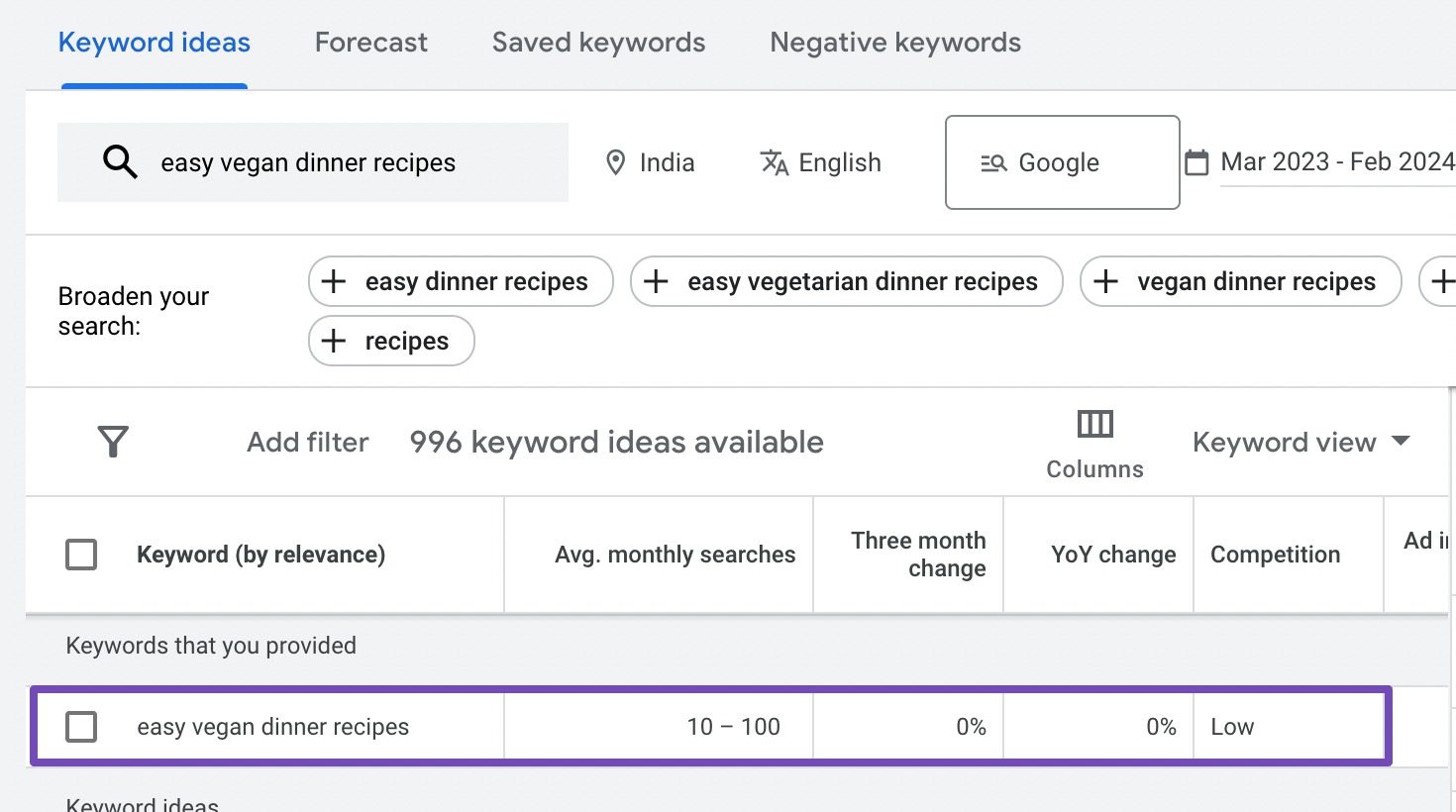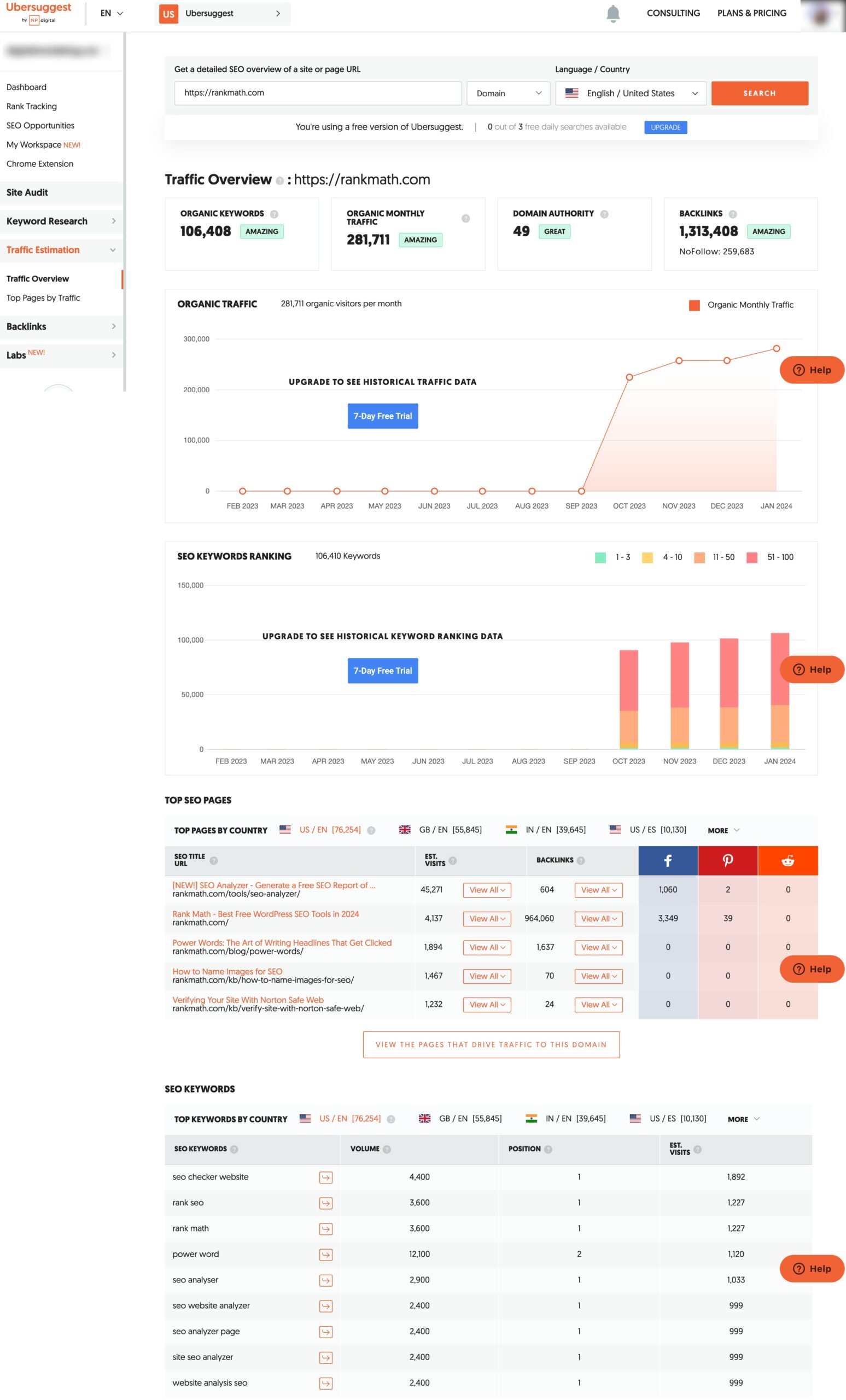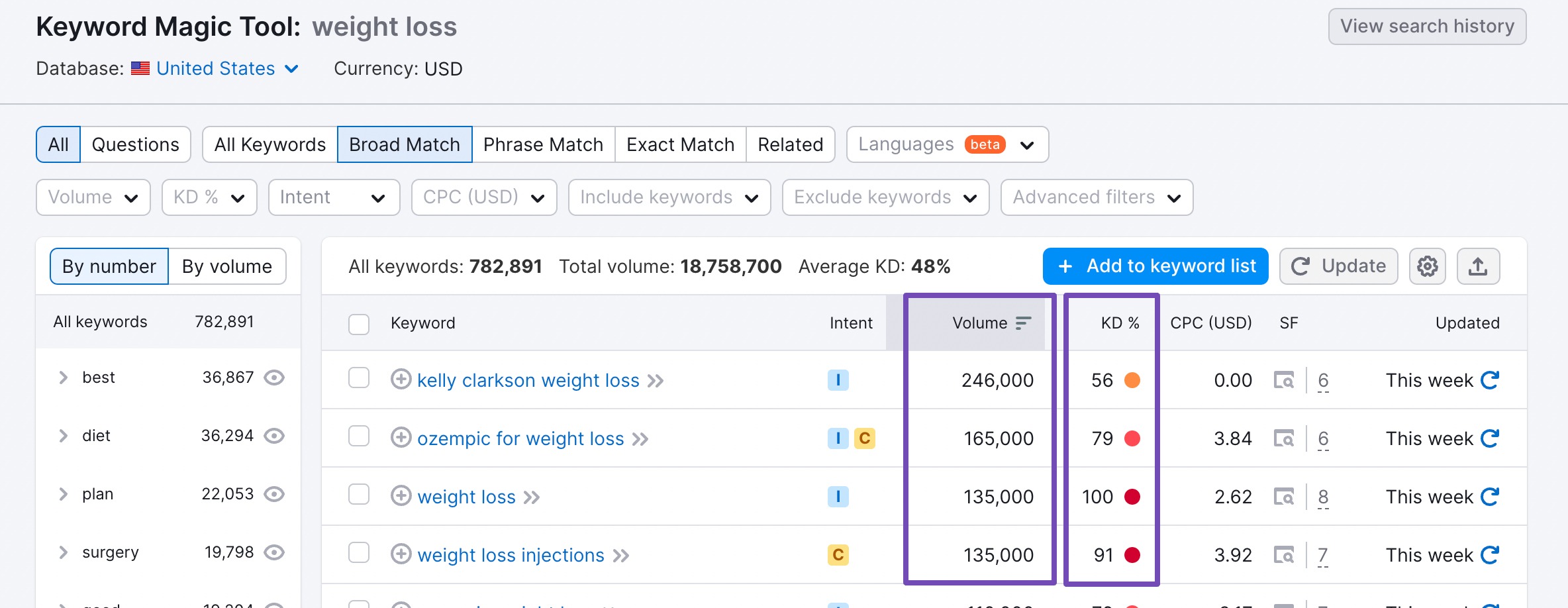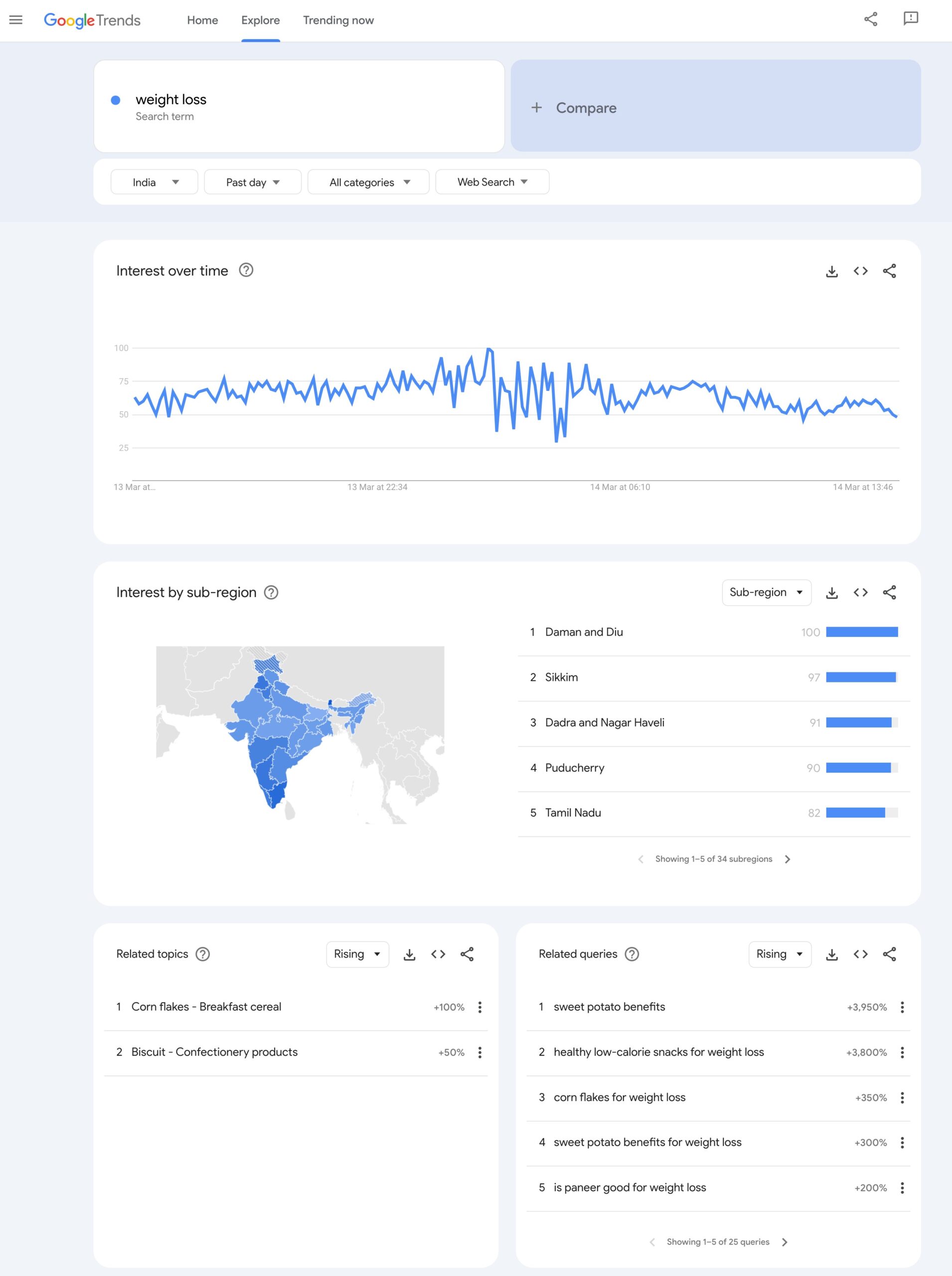Choosing the right keywords for your website is important for the success of your blog.
On the flip side, selecting the wrong keywords for SEO can prolong the time and effort required to achieve your goals.
To start off on the right foot, developing a robust keyword research strategy is important.
In this post, we’ll walk you through selecting keywords for SEO. You’ll learn precisely what to consider when choosing the best keywords for your website.
Let’s dive in and discover how to find the perfect keywords to boost your website’s visibility and reach your objectives.
Table Of Contents
1 What are the Right Keywords for SEO?
Before selecting keywords for SEO, let us first understand what the right keyword means.
The “right” keyword for SEO is one that effectively aligns with your website’s content, target audience, and business objectives. It should be relevant, reflecting what your audiences are searching for and what your website offers.
For instance, if you run a blog about healthy eating, keywords like “healthy recipes” or “nutrition tips” will be relevant to your content.
Additionally, the keyword’s search volume and competition level are important considerations.
Long-tail keywords such as “easy vegan dinner recipes” may have a lower search volume but can be more targeted and easier to rank for.

Understanding search intent is also essential; keywords should match the user’s intent behind the search.
2 Choosing the Right Keywords for SEO
Let us now discuss the ways to help you choose the best SEO keywords for your website.
2.1 Find Relevant Keyword Ideas
Finding relevant keyword ideas is the foundation of creating a successful SEO strategy.
One effective method is to use keyword research tools such as Google Keyword Planner, Semrush, or Ahrefs. These tools provide valuable insights into search volume, competition level, and related keywords, helping you discover relevant terms that align with your content and target audience.

Another approach is to analyze your competitors’ keyword strategies. You can uncover valuable opportunities and gain insights into your industry’s keywords by identifying the keywords they’re ranking for.
You can use Ubersuggest to analyze keyword competition. By evaluating factors such as search volume, CPC, and keyword difficulty score, you can get insights into the level of competition for each keyword.
To do so, enter the domain of a competing website you want to rank above and click SEARCH.
The tool will provide detailed information and help identify opportunities with lower competition and higher potential for ranking on search engine results pages.

Refer to our dedicated tutorial on keyword research to learn about the different strategies for performing keyword research.
2.2 Identify Search Intent
Identifying search intent is essential when selecting the right keywords for SEO, as it ensures alignment between audience expectations and the content you provide.

There are generally three types of search intent: informational, navigational, and transactional.
Informational Intent: Audiences seek information or answers to their questions, such as “How to bake a chocolate cake?” or “What are the symptoms of COVID-19?”
Navigational Intent: Audiences seek a specific website or page, such as “YouTube” or “Facebook login”.
Transactional Intent: Audiences intend to purchase or take a specific action, such as “Buy iPhone 13” or “Sign up for a yoga class”.
To identify search intent, analyze the keywords you’re considering and their context. Look for clues such as specific phrases, questions, or action-oriented language in the queries in the SERP.
For instance, the search intent for “how to make a PPT” is informational, indicating that audiences seek guidance or instructions on creating a PowerPoint presentation. They likely want step-by-step instructions, tips, or tutorials to help them create a PowerPoint presentation effectively.

2.3 Evaluate Keyword Metrics
When evaluating keyword metrics like search volume and keyword difficulty for choosing the right keywords for SEO, it’s essential to strike a balance between popularity and competition.
Search volume indicates how frequently a keyword is searched for on search engines, giving insights into its potential traffic.
On the other hand, keyword difficulty measures how challenging it is to rank for a particular keyword based on competition from other websites. The higher the percentage, the more difficult it is to rank the keyword.
You can check the search volume and keyword description using the Semrush Keyword Magic Tool.

2.4 Assess Earning Potential
Knowing whether your chosen SEO keywords will bring you money is essential.
Assessing earning potential when choosing keywords for SEO helps evaluate the commercial value and conversion likelihood associated with specific search terms.
Keywords related to product reviews, comparison shopping, or specific brands often indicate strong commercial intent and higher conversion potential.
Analyzing metrics such as average CPC (Cost Per Click) and search volume can provide insights into the competitiveness and profitability of keywords within a given niche.
2.5 Choose Trending Keywords
It’s always a good practice to choose trending keywords. Trending keywords often reflect current events, seasonal trends, viral topics, or emerging industry developments.
Incorporating trending keywords into your SEO strategy can help increase visibility, attract targeted traffic, and capitalize on timely opportunities.
You can use Google Trends to check whether your keyword is trending. You can enter keywords related to your niche and analyze their search interest trends. Look for keywords that show a significant spike in search volume, which indicates that they’re trending keywords.

3 Conclusion
Selecting the right keywords for SEO is a varied process that requires careful consideration and strategic planning.
You can identify valuable keyword opportunities that align with your objectives by understanding your audience’s needs, conducting thorough keyword research, and analyzing metrics such as search volume and competition level.
Furthermore, staying updated with industry trends and incorporating trending keywords into your strategy can help boost your website’s visibility and attract targeted traffic.
With a thoughtful approach to keyword selection and a commitment to continuous optimization, you can position your website for long-term growth and success in search engine rankings.
If you like this post, let us know by Tweeting @rankmathseo.
